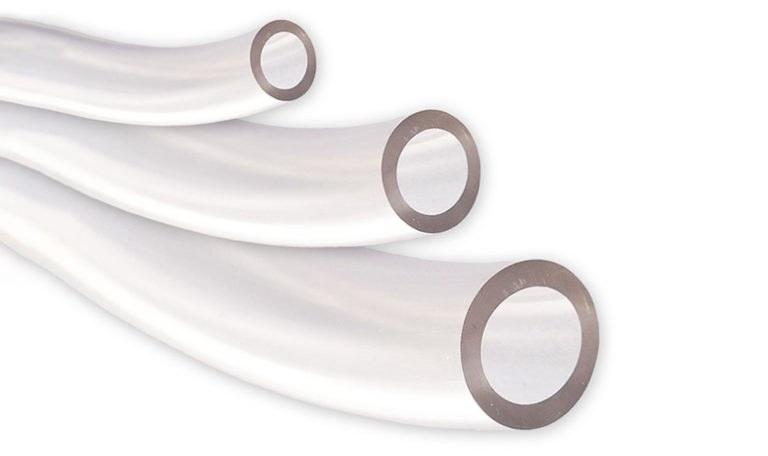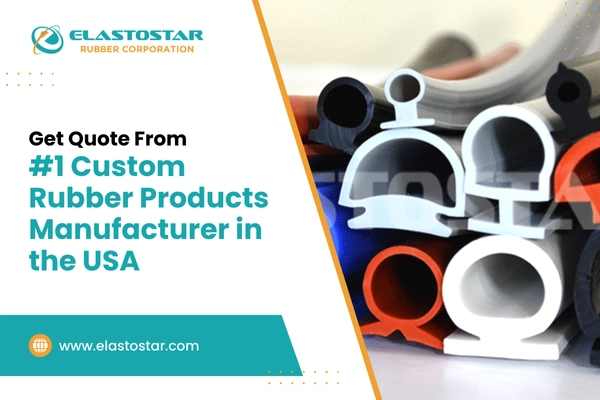The material used for medical tubing is extremely important in the healthcare industry. It must be safe, reliable, and perform well in demanding environments. Medical tubing is used in many essential applications, such as IV lines, oxygen masks, surgical tools, and lab equipment.
Among all materials, extruded silicone rubber has become the preferred choice due to its excellent flexibility, biocompatibility, and ability to handle sterilization and high temperatures. It is also non-toxic, non-reactive, and long-lasting for direct contact with the human body. Because of these advantages, many manufacturers focus on producing high-quality, medical-grade silicone tubing.
This blog will explain why silicone tubing is the best solution for healthcare applications.
Table of Contents
What Makes Silicone Ideal for Medical-Grade Tubing?

Medical silicone rubber is widely used in healthcare because it offers a perfect combination of safety, flexibility, and durability. One key reason is its curing process. Curing helps remove harmful substances from the material, making it safe for medical use. This process ensures that the silicone is clean, stable, and non-toxic.
Silicone rubber is also very pliable, bending and stretching without breaking. It is biocompatible and can safely contact the human body without causing irritation or allergic reactions. Additionally, it can be sterilized easily using heat, steam, or gas for repeated medical use. These qualities make silicone a top choice for medical-grade tubing.
Read More – Silicone Tubing: Meaning, Types & Benefits
What are the Advantages Of Medical Grade Silicone Tubing?

When manufactured with the proper expertise, medical-grade rubber and silicone tubing have many benefits, such as:
- Available in various grades:
Silicone tubing grades include FDA Grade, Class VI Grade, and Platinum Cure Grade. These choices give you more options when selecting the appropriate tubing grade. Platinum Cure Grade tubing, for example, is solid and commonly used in medical and pharmaceutical industries. - Biocompatibility:
Many types of medical equipment must be put directly into a patient’s body, and it is crucial that the equipment is biocompatible to decrease the chance of developing complications. Because approximately 3 million individuals within the U.S. are allergic to natural rubber latex, silicone can be an excellent synthetic substitute. - Clear:
Material clarity makes it easier for medical professionals to observe the flow of fluids when medical tubing is utilized in situations like IVs and blood drains. Silicone is an excellent natural source of transparency. However, it can also be customized by using different colours. - Chemically impervious, non-odourless, and tasteless:
These properties ensure that medical-grade silicone and tubing won’t interact with any other materials it comes in contact with, significantly enhancing its flexibility. It is perfect for administering any medicine, oxygen, or food items. - Compatible with multiple sterilization methods:
The medical industry requires regular sterilization to avoid patient safety risks and eliminate contamination. Rubber tubing can handle various sterilization procedures, including steam autoclaving and dry heat. - Extreme resistance to temperature:
Rubber’s ability to endure extreme temperatures makes it perfect for use in medical equipment. Medical professionals can quickly disinfect and sterilize it with heating-related processes. In reality, silicone tubing can tolerate temperatures as high as 440°F.
Alongside the advantages mentioned earlier, silicone tubing also possesses a highly beneficial feature. Its silicone-oxygen bonds give it molecular stability, which provides a high degree of biodurability.
This implies that silicone tubing is especially suitable for applications that require constant contact with the skin or bodily fluids, like catheter tubing. Silicone remains flexible even without adding additives, a feature that improves its biocompatibility.
What are the Applications of Hoses and Tubes?

Medical-grade silicone and rubber tubing are incredibly versatile. Some typical applications include:
- Anesthesiology and respiratory equipment
- Biopharmaceutical laboratory equipment and processing
- Cell and tissue culture systems
- Dialysis
- IVs and catheters
- Management and drainage of blood and fluids
- Oxygen transfer
- Peristaltic pumps
- Surgical drains
Since medical tubing has various potential uses, it is important to consider its intended properties to choose the most suitable choice.
For instance, tubing designed for human contact with the inside could require flexibility, while tubing used for lab equipment could require more rigidity.
A medical-grade silicone tubing provider can provide various sizes, styles, and lengths to satisfy all specifications.
Read More – Areas Of Application Of Silicone Rubber Tubing & Its Properties
Choosing the Right Tubing Based on Use
Not all medical tubing is the same. Choosing the right type is essential based on how and where it will be used. For example, flexible tubing is needed for catheters or patient care devices that move with the body. In contrast, more rigid tubing is better for lab systems or machines that require steady flow and structure.
This is where custom silicone medical accessories come in. Medical providers and equipment manufacturers often need tubing in specific sizes, hardness levels, or shapes to meet exact requirements. Choosing the right tubing ensures better performance, safety, and comfort for patients and healthcare professionals. Working with the right supplier helps match the tubing to each unique medical application.
Medical Grade Silicone Tubing from Elastostar Rubber Corporation

Elastostar Rubber Corporation is a leading rubber product manufacturer specializing in high-quality, medical-grade silicone tubing. Our tubing is manufactured in the USA using platinum-cured silicone and meets strict standards, including FDA 21 CFR 177.2600 and USP Class VI certification. This ensures our products are safe, clean, and fully compliant for critical healthcare applications.
We offer full customization to meet your needs. Tubing can be tailored in size, hardness, color, and shape. Our silicone solutions are trusted across multiple industries, including medical, pharmaceutical, dental, and food processing equipment.
With advanced manufacturing capabilities and a commitment to quality, Elastostar is your reliable partner for precision silicone tubing. Contact us today to learn more or request a custom quote.
Recommended Reads
- Top Applications of FDA Silicone Rubber in Food Processing Industries
- Why FDA-Approved Silicone Rubber is Preferred for Food Industry Gaskets & Seals
- Top Silicone Rubber Extrusions in Food-Grade Applications
Conclusion
Medical-grade silicone tubing offers unmatched safety, flexibility, and reliability for various healthcare applications. Its biocompatibility, resistance to extreme temperatures and chemicals, and ease of sterilization ensure top performance in critical medical environments.
With customizable options and compliance with strict industry standards, silicone tubing continues to support innovation and patient safety. At Elastostar Rubber Corporation, we specialize in delivering high-quality medical-grade silicone tubing customised to your specific needs.
FAQs
1. What is medical-grade silicone tubing?
Medical-grade silicone tubing is a flexible, biocompatible material used in healthcare devices. It’s safe for contact with the human body and meets strict medical standards, such as USP Class VI and FDA 21 CFR 177.2600.
2. Why is silicone tubing preferred in medical applications?
Silicone tubing is non-toxic, highly flexible, resistant to heat and chemicals, and easy to sterilize. These qualities make it ideal for IVs, oxygen masks, catheters, and surgical devices.
3. Can silicone tubing be sterilized?
Yes. Medical silicone tubing can be sterilized using autoclaving (steam), ethylene oxide (ETO) gas, gamma radiation, or dry heat without losing performance.
4. Is silicone tubing safe for drug and fluid delivery?
Absolutely. It’s chemically inert and won’t react with medications, blood, or other fluids, making it perfect for fluid transfer and drug delivery systems.
5. What industries use medical-grade silicone tubing?
Due to its safety and compliance with strict regulations, it’s widely used in healthcare, pharmaceuticals, laboratories, dental clinics, and food processing.
6. Does Elastostar offer customized silicone tubing?
Yes. Elastostar provides custom medical-grade silicone tubing in various sizes, durometers, and colors, customised to your specific healthcare or industrial needs.


